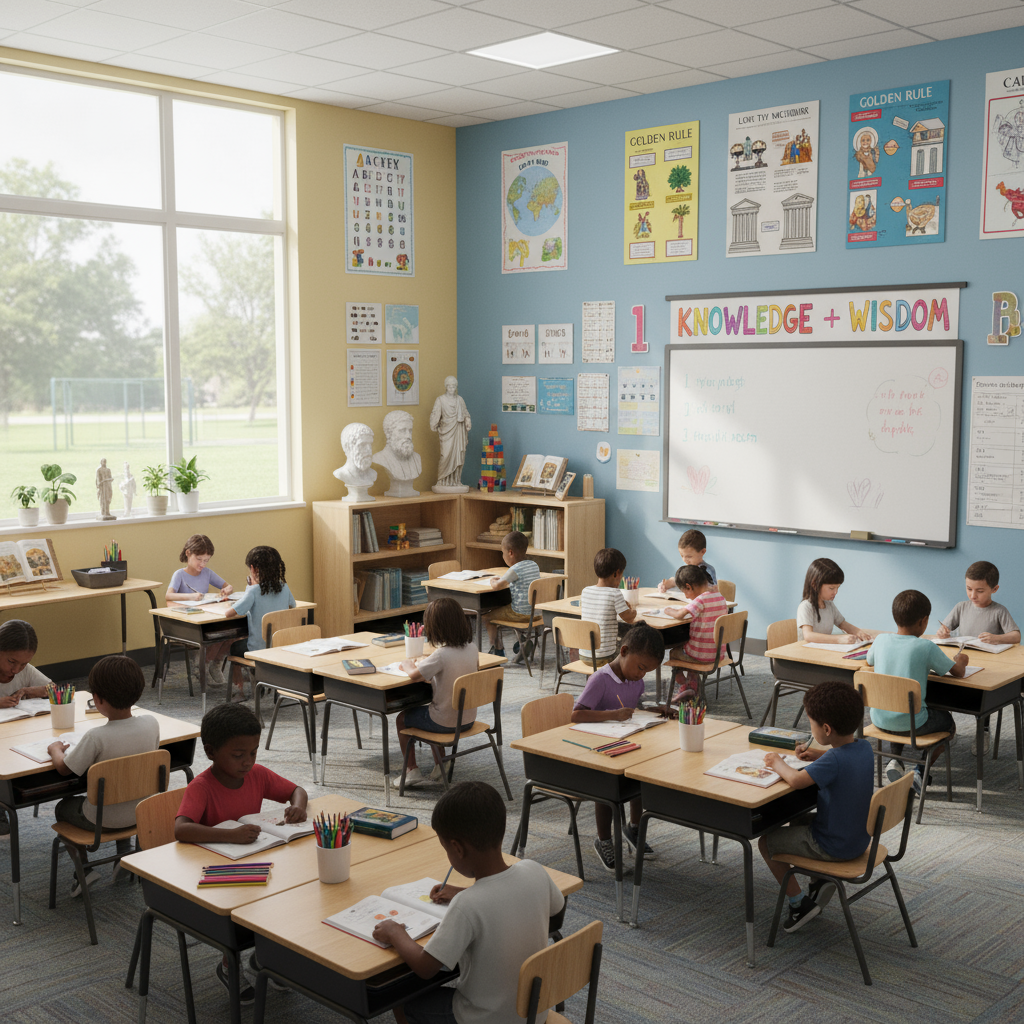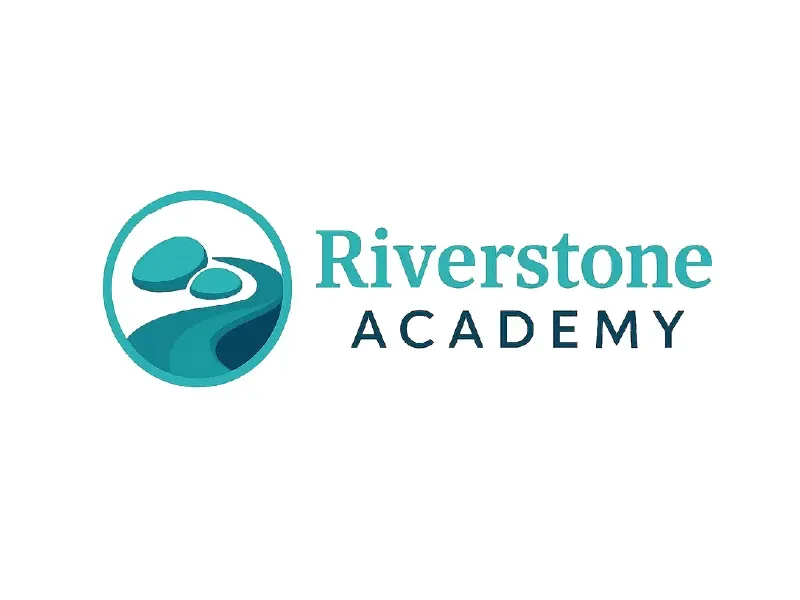
Riverstone Academy’s Public Christian School Sparks Colorado Constitutional Debate
Riverstone Academy, Colorado’s first public Christian school, has sparked a major legal dispute over the state’s requirement that publicly funded schools remain nonsectarian. Authorized by a contract rather than a local district, Riverstone blends classical academics with an explicitly Christian curriculum, prompting the Colorado Department of Education to challenge its eligibility for state funding. The Department argues that the school's religious teachings violate constitutional mandates for separation of church and state. This case raises broader questions about the limits of religious content in public education, school choice policies, and the balance between religious freedom and constitutional neutrality. The ongoing dispute highlights fundamental tensions in public education regarding church-state separation and the role of religious perspectives within publicly funded schools.
Summary
Riverstone Academy’s Public Christian School Model Sparks Constitutional Debate in Colorado
Riverstone Academy, recognized as Colorado’s first public Christian school, has ignited a significant legal and constitutional dispute centered on the state’s nonsectarian mandate for publicly funded schools. The Colorado Department of Education (CDE) has formally challenged Riverstone Academy’s eligibility for state funding, citing concerns that the school’s use of a religious curriculum and explicit Christian values violates Colorado’s constitutional requirements for separation of church and state in public education.
Background: Riverstone Academy’s Educational Approach and Authorization
Riverstone Academy operates as a tuition-free public elementary school serving grades K-5. It is authorized by Education ReEnvisioned BOCES, a contract authorizer, rather than a local school district. The school blends classical academics with a pronounced Christian foundation, utilizing materials such as the Master Books curriculum, which is explicitly religious in nature. This approach marks a departure from traditional public schools by integrating sectarian Christian teachings within a publicly funded educational setting.
Constitutional and Legal Challenges
The Colorado Constitution mandates that public schools must be nonsectarian, ensuring that publicly funded institutions remain neutral regarding religious doctrine. The CDE contends that Riverstone Academy’s curriculum breaches this constitutional provision, emphasizing that such sectarian content disqualifies the school from receiving state funding. In a formal communication, the Department warned that unless the school modifies its curriculum to comply with state law, it risks losing its public funding eligibility.
This situation raises complex questions about the definition and regulation of publicly funded education. Riverstone Academy’s authorization by a BOCES contract rather than a local district highlights ongoing tensions regarding the oversight of public charter and contract schools, particularly those incorporating religious content.
Broader Implications and National Context
The dispute over Riverstone Academy underscores a nationwide debate regarding the permissible extent of religious influence in publicly funded schools, the scope of school choice, and the balance between religious freedom and constitutional mandates of church-state separation. Proponents of Riverstone’s model argue that federal law protections and contractual authorization allow for educational innovation that integrates classical Christian values within public schooling. Conversely, critics insist that public funding must not support religious instruction, adhering strictly to constitutional prohibitions against using state funds for sectarian education.
This case reflects broader challenges related to public education law and school choice policies, especially regarding how religious curricula intersect with public charter authorization and the operation of public contract schools. It highlights the ongoing struggle to define the limits of religious content in publicly funded institutions while respecting constitutional protections.
Conclusion
Riverstone Academy’s establishment as Colorado’s first public Christian school has sparked a critical constitutional challenge centered on the state’s nonsectarian public school requirement. The legal dispute brought by the Colorado Department of Education illustrates the complex interplay between innovative educational models that incorporate religious perspectives and the constitutional mandate to maintain religious neutrality in publicly funded schools. As this case unfolds, it highlights fundamental questions about the future of religious freedom, school choice, and church-state separation within the public education system in Colorado and beyond.

Frequently Asked Questions
Q: Is Riverstone Academy a public school?
A: Riverstone Academy is not a public school; it is a private, independent school. Private schools typically operate independently of the public school system and often have their own admissions processes and tuition fees. Riverstone Academy focuses on a specific educational approach and community that may differ from public school offerings.
Q: Can public schools in Colorado have a religious foundation?
A: Public schools in Colorado, like in all U.S. states, are required to be secular and cannot have a religious foundation. The U.S. Constitution's Establishment Clause prohibits public schools from endorsing or promoting any religion. While students may express their personal religious beliefs, schools must remain neutral and avoid incorporating religious teachings or practices into the official curriculum or school activities.
Q: Legal status of Christian public schools in Colorado
A: In Colorado, public schools must adhere to the Establishment Clause of the First Amendment, which prohibits government endorsement of religion; therefore, public schools cannot be explicitly Christian or affiliated with any religion. While religious clubs and activities may be permitted on public school campuses under equal access rules, the schools themselves must remain secular and cannot promote Christian doctrine. Private Christian schools operate independently and do not receive public funding, distinguishing them from public schools. Attempts to establish officially Christian public schools would likely face legal challenges based on constitutional grounds.
Q: What is Education reEnvisioned BOCES?
A: Education reEnvisioned BOCES is an innovative educational initiative aimed at transforming traditional learning approaches to better meet the needs of students and communities. It typically involves rethinking curriculum design, integrating technology, and fostering personalized learning environments. The goal is to enhance educational outcomes by making learning more engaging, relevant, and equitable. This initiative is often supported by a Board of Cooperative Educational Services (BOCES), which provides shared educational programs and services to multiple school districts.
Q: How is Riverstone Academy funded?
A: Riverstone Academy is primarily funded through a combination of tuition fees paid by families, private donations, and fundraising events. As an independent school, it does not rely on public funding but may receive grants or sponsorships from community organizations. This diversified funding approach helps support its programs, facilities, and educational initiatives.
Key Entities
Riverstone Academy: Riverstone Academy is a public charter school in Colorado focused on personalized, project-based learning for students in grades K-12. It emphasizes innovation and community involvement to enhance educational experiences.
Education reEnvisioned BOCES: Education reEnvisioned BOCES is a Colorado regional education service provider that supports districts with innovative learning solutions and shared services. It aims to improve educational outcomes through collaboration and resource sharing among schools.
Colorado Department of Education: The Colorado Department of Education oversees public education policies, standards, and funding across the state. It works to ensure equitable access to quality education for all Colorado students.
Ken Witt: Ken Witt is an educational leader known for his work in enhancing learning environments and school innovation. He has been involved in initiatives focusing on improving student engagement and educational outcomes.
Quin Friberg: Quin Friberg is a professional involved in education management or advocacy within Colorado. His work includes contributing to educational development and community partnerships.
External articles
- Will this 'public Christian school' prompt a legal fight in ...
- Colorado court fully protects Christian academy's ability to ...
- Darren Patterson Christian Academy v. Roy - ADF Media
Articles in same category
- 27J School District Board Election 2025: Candidates, Eligibility & Key Issues
- Hands-On Agriculture Education in Schools: Building Confidence and Sustainability
- Colorado School District Lawsuit Over LGBTQ and Minority Book Removals
YouTube Video
Title: Colorado's 'first public Christian school' faces funding warning over curriculum
Channel: KOAA 5
URL: https://www.youtube.com/watch?v=VNo7Hd7d988
Published: 5 days ago
Education